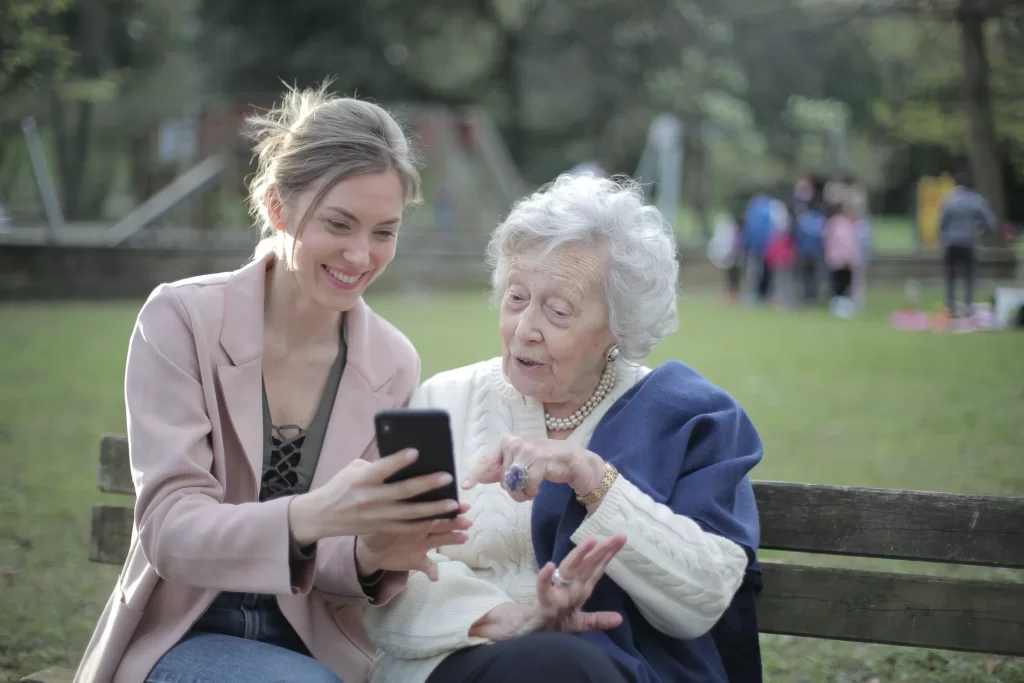
In an age where the global population is living longer than ever, our responsibility to care for our elderly loved ones has grown significantly. According to a report by NCOA, approximately 80% of seniors have at least one chronic disease, while 68% have at least two.
Addressing their physical, emotional, and mental needs requires time, patience, and understanding. This guide provides nine strategies to ease aging burdens, allowing our loved ones to enjoy their twilight years with dignity and grace.
Fostering Social Connections
Building and maintaining strong relationships is a balm to the loneliness accompanying old age. Engaging with family members, spending time with old friends, or participating in community activities gives them a sense of connection. It’s not just about staying active; it’s about feeling valued and included.
These bonds stimulate mental activity, enhancing their overall health. Moreover, staying connected offers them a support system in times of need. So, let’s make sure we help our seniors stay socially connected, enriching their life experiences.
Legal Protection and Support
With aging, vulnerabilities increase, and so does the need for legal protection and support. Seniors can face varied issues, like financial fraud, abuse, or, in some cases, health problems stemming from past occupational hazards.
For example, a long-forgotten employment history in an asbestos-laden environment could have health implications that show up after decades. When such concerns arise, professional legal advice becomes critical, as the victims may be entitled to compensation for the harm done.
Experienced asbestos lawyers are well-equipped to navigate these complex situations. Their expertise ensures rightful compensation for past wrongs, providing your elderly loved ones the justice they deserve.
This legal support system offers peace of mind, knowing they are not alone in their fight for justice.
Ensuring a Safe Home Environment
Safety at home becomes a top priority as our loved ones age. A well-adjusted living environment can significantly reduce the risk of falls, accidents, and injuries, allowing seniors to maintain their independence.
Here are some key adjustments to consider:
- Grab Bars: Install these in bathrooms and along staircases to provide support and stability.
- Non-slip Mats: These are a must in slippery areas, such as bathrooms and kitchens, to prevent falls.
- Adequate Lighting: Well-lit spaces can help avoid potential hazards, especially during night-time movements.
- Clear Pathways: Removing clutter can ensure safe and unobstructed mobility within the home.
- Accessible Shelves and Cabinets: Position everyday items within easy reach to prevent strain or overexertion.
These modifications enhance safety and promote self-reliance, allowing seniors to enjoy their living spaces more confidently.
Encouraging Physical Activity
Maintaining health in seniors significantly depends on their physical activity levels. Persuading our aged loved ones to embrace activity can contribute to their mobility and flexibility, enriching their independence and overall life quality.
Beneficial exercises like walking, swimming, or yoga, known for their gentleness and low impact, can yield considerable improvements. They enhance physical endurance, boost cognitive abilities, uplift mood, and promote overall well-being.
Nevertheless, we must always prioritize safety when fostering an active lifestyle among seniors. It is critical to consult a healthcare professional before initiating any new exercise program.
This approach ensures the creation of an exercise plan tailored to the individual’s health status and abilities.
Regular Health Check-ups
Elder care demands regular health surveillance as it is vital to manage any health issues promptly. Routine health check-ups can catch potential problems, manage existing ones, and ensure up-to-date preventative steps like vaccinations.
Consider these crucial aspects:
- Doctor Visits: Regular appointments can supervise overall wellness and flag diseases early.
- Eye and Ear Tests: Frequent exams can help retain ideal vision and hearing.
- Immunizations: Always keep vaccinations current to guard against illnesses.
- Dental Appointments: Oral wellness is an integral part of complete health. According to this dentist in Melbourne FL, our dental health deteriorates as we grow old so dental visits become increasingly important.
- Screenings: Regular tests for conditions like hypertension and high cholesterol are necessary.
Incorporating these methods into a consistent healthcare routine can enhance the health of our elderly relatives and offer us assurance.
Mental Stimulation
Mental exercise plays a big role in sustaining cognitive vigor in seniors. It helps keep the mind nimble, enhances memory, sharpens intellect, and decelerates cognitive wane. Various activities can aid in this.
Take reading as an example; it entertains, jogs memory, boosts concentration, and broadens the mind. Puzzles, such as crosswords or sudoku, aid in sharpening problem-solving capabilities and refining brain functions. Joining in board games provides intellectual stimulation and a fun, social experience.
Learning novel skills is equally advantageous. It could be a new language, picking up a musical instrument, or a hobby like painting; the thrill of learning fresh things can invigorate brain health.
Balanced Diet and Hydration
Prioritizing proper nutrition and hydration for our older family members is crucial for their overall health. They need a balanced diet packed with diverse food groups.
Here are some elements for preserving their well-being:
- Colorful Fruits and Veggies: Bring a rainbow of fruits and veggies to their plates.
- Healthy Proteins: Incorporate chicken, fish, or legumes for maintaining muscle strength.
- Grains: Whole grain foods energize and aid in digestion.
- Dairy: Include low-fat dairy products for strong bones.
- Hydration: Promote frequent fluid intake, especially during hot weather or illness.
A nutritious diet paired with sufficient hydration goes a long way toward improving the health and liveliness of our older loved ones, empowering them to remain active and enthusiastic.
Respecting Their Independence
Honoring the independence of our older family members isn’t only about letting them tackle tasks they can do themselves. It’s also about nurturing their dignity and self-esteem. The elderly can sometimes feel powerless due to health constraints or physical limitations.
Despite these challenges, they still possess the capacity for self-sufficiency in many life areas. As we lend our support, we must also value their freedom. This balance may involve letting them cook their meals, handle their personal care routines, or pick their recreational activities, as long as these tasks aren’t risky.
Emotional Support and Empathy
Growing older might sometimes bring about fear, unease, or insecurity due to health, physical abilities, or lifestyle changes. We can offer emotional support by listening attentively to their worries, validating their emotions, and reminding them of their value and vital role in our lives.
Devoting time to them, including them in family events, and consistently inquiring about their emotional well-being can remarkably boost their sense of belonging and joy.
Conclusion
Looking after the elderly calls for all-around care – from securing a safe living environment to bestowing emotional reinforcement. It involves valuing their autonomy while lending the needed helping hand.
Consistent health evaluations, a nutritious diet, and physical activity add to their holistic wellness. Let’s not forget that aging is just another chapter in the book of life, not a setback.







